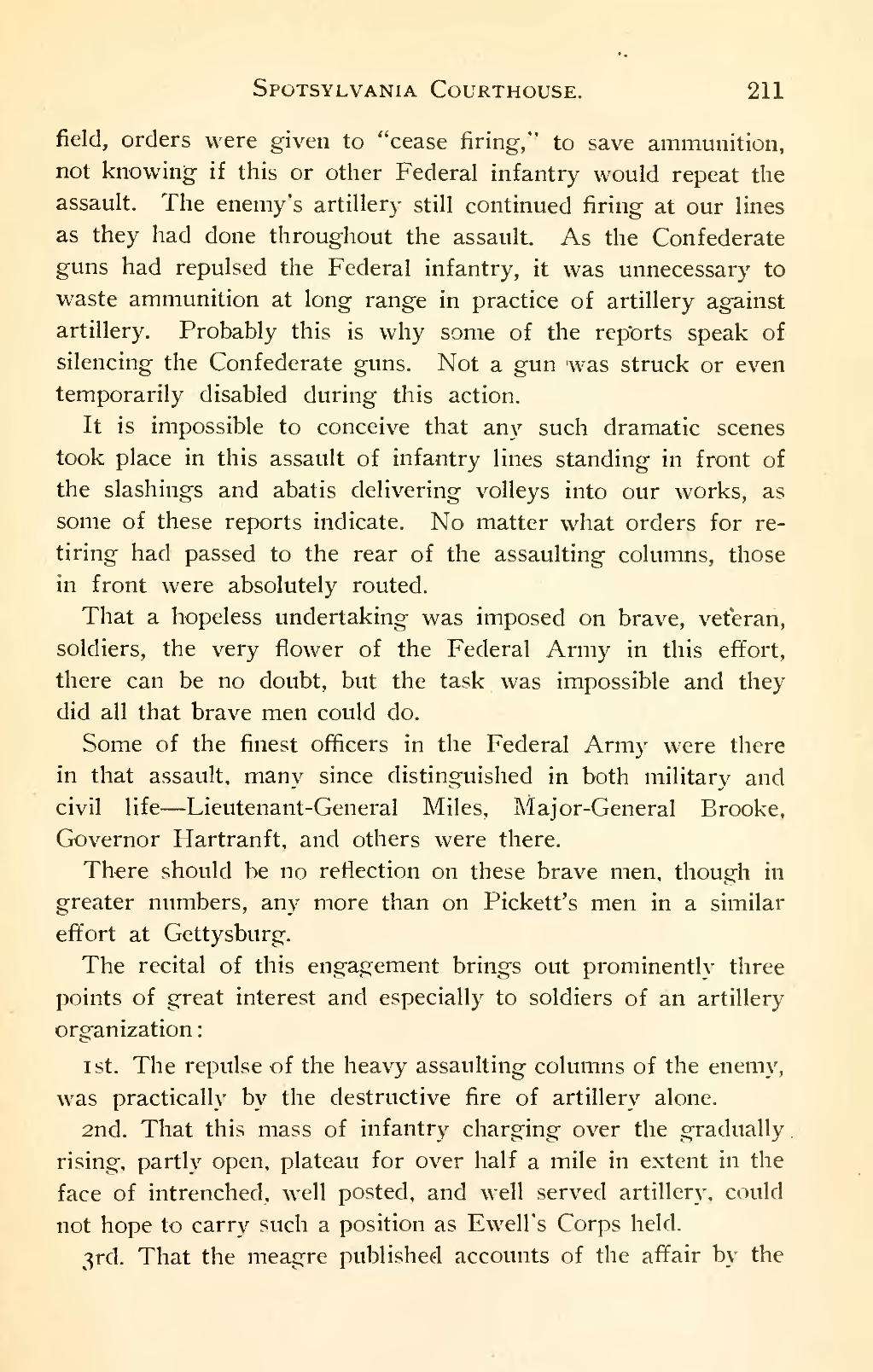Spotsylvania Courthouse. 211
field, orders were given to "cease firing," to save ammunition, not knowing if this or other Federal infantry would repeat the assault. The enemy's artillery still continued firing at our lines as they had done throughout the assault. As the Confederate guns had repulsed the Federal infantry, it was unnecessary to waste ammunition at long range in practice of artillery against artillery. Probably this is why some of the rep'orts speak of silencing the Confederate guns. Not a gun was struck or even temporarily disabled during this action.
It is impossible to conceive that any such dramatic scenes took place in this assault of infantry lines standing in front of the slashings and abatis delivering volleys into our works, as some of these reports indicate. No matter what orders for re- tiring had passed to the rear of the assaulting columns, those in front were absolutely routed.
That a hopeless undertaking was imposed on brave, veteran, soldiers, the very flower of the Federal Army in this efifort, there can be no doubt, but the task was impossible and they did all that brave men could do.
Some of the finest officers in the Federal Army were there in that assault, many since distinguished in both military and civil life — Lieutenant-General Miles, Major-General Brooke, Governor Hartranft, and others were there.
There should be no reflection on these brave men, though in greater numbers, any more than on Pickett's men in a similar effort at Gettysburg.
The recital of this engagement brings out prominently three points of great interest and especially to soldiers of an artillery organization :
1st. The repulse of the heavy assaulting columns of the enemy, was practically by the destructive fire of artillery alone.
2nd. That this mass of infantry charging over the gradually . rising, partly open, plateau for over half a mile in extent in the face of intrenched, well posted, and well served artillery, could not hope to carry such a position as Ewell's Corps held.
3rd. That the meagre published accounts of the affair by the
